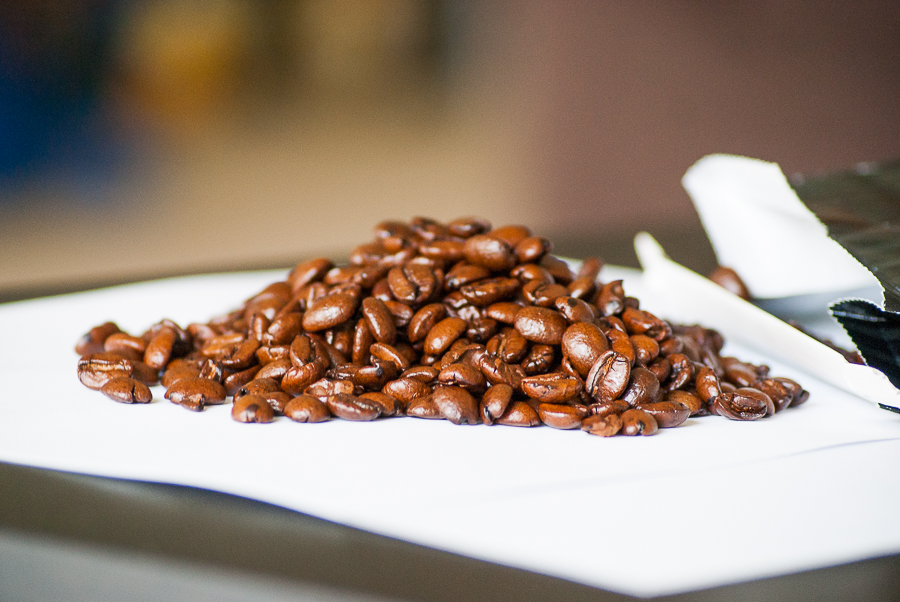
Climate change threatens global coffee supplies
 Americans disagree on a lot of things — politics, musical tastes, sports teams, appropriate places for tattoos. But we pretty much agree on one thing: coffee, good.
Americans disagree on a lot of things — politics, musical tastes, sports teams, appropriate places for tattoos. But we pretty much agree on one thing: coffee, good.
A study conducted by the National Coffee Association USA found that 62 percent of the 3,000 people surveyed in 2017 were daily coffee drinkers — which is why over half of the country may cry when they learn that climate change affects coffee bean production and could impact future coffee supplies.
Climate change makes areas too hot and dry for coffee plants, threatens coffee-pollinating honey bees with higher temperatures and less rainfall and allows just the right conditions for leaf rust fungus, which kills coffee plants. Coffee produced under such circumstances may not even taste the same, since hotter temperatures affect the way that beans ripen and develop flavor.
Researchers predict that, due to climate change, countries that grow coffee beans will experience a loss in area where coffee can grow. They estimate Latin America will lose 88 percent of coffee-growing land to climate change — with Honduras, Nicaragua and Venezuela being impacted the most.
“Scientists think good coffee ground in 2050 will span only a fifth to a quarter of current coffee-friendly habitat,” said Meghan Bartels, a science writer at Newsweek.
Coffee growers in Ethiopia — where 15 million people rely on coffee to make a living — have already experienced a 15 to 20 percent decrease in summer rains, which has devastated crops in the country. Researchers predict that the country could lose up to 60 percent of coffee-growing land by the end of the century.
Coffee farmers who depend on the crop for their livelihoods will have to move their crops or implement new strategies like mulching to continue growing coffee. The added hardship may prove too difficult for already struggling farmers. Some coffee growers have already made the switch to more reliable crops.
Coffee farming will become less possible and less practical. Coffee demand could make coffee more expensive, too. What does all this mean? A large coffee frappe might cost more and taste worse in the future.
But that’s only part of the problem.
“There is a whole lot more at stake here than, ‘Is my nice espresso in New York going to get more expensive?’” said Taylor Ricketts, the director of the University of Vermont’s Gund Institute for Environment. “Climate change is going to threaten this primary livelihood for millions of people in vulnerable communities all over the world.”
Coffee is the largest global commodity besides oil and provides an income for 25 million families in over 60 countries. Climate change impacts on coffee production will devastate family incomes. In other words, people are depending on you to drink more coffee — and to make small lifestyle changes toward sustainability so that they can continue farming.
The Sustainable Coffee Challenge is facilitated by Conservation International and promotes sustainable coffee practices. The challenge strives to make coffee a more sustainable crop, prevent deforestation, protect jobs and make coffee available in the future.
“It’s time to think about coffee beyond our daily cup,” said Dr. M. Sanjayan, the CEO of Conservation International. “Coffee holds the promise of driving sustainable agriculture and farmer prosperity across commodity crops and engaging hundreds of millions of people around the globe in sustainable living.”
If nothing else will bring people together to combat climate change, I hope coffee will. If endangered pikas, poor air quality and extreme weather events won’t sway people to believe that climate change is real science, maybe losing that morning cup of joe will.
Individuals can encourage sustainable coffee practices by asking whether their next cup was sustainably grown.
Written by: Jess Driver — jmdriver@ucdavis.edu
Disclaimer: The views and opinions expressed by individual columnists belong to the columnists alone and do not necessarily indicate the views and opinions held by The California Aggie.




